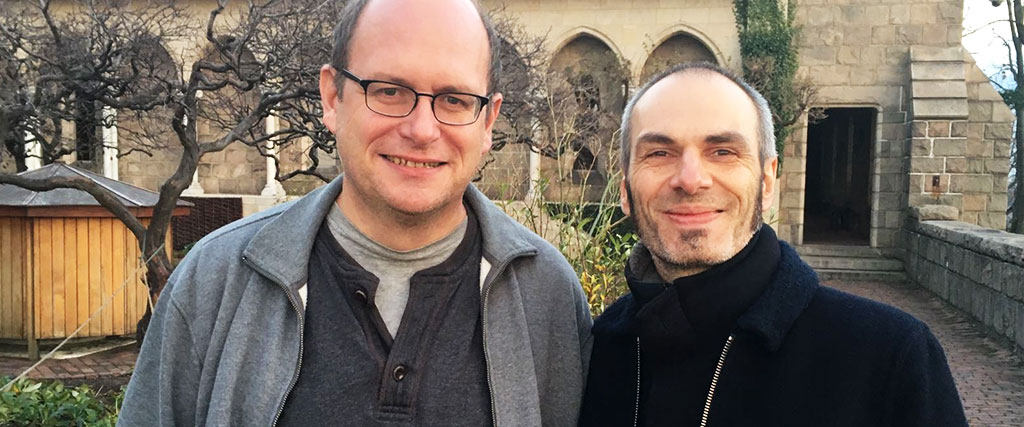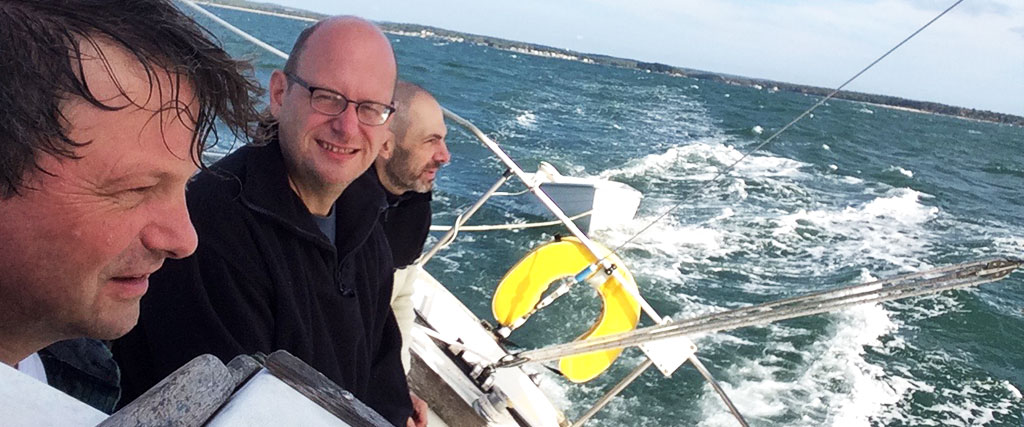Carrying out Research in New York
Every seven semesters, German university professors have the chance to focus fully on their research – something that is not always easy in the everyday life of a university.
Professor Thorsten Hoppe from CECAD, the Cluster of Excellence for Aging Research in Cologne, took this opportunity in the fall and winter term of 2016. He spent a research semester at New York’s Columbia University in the lab of Oliver Hobert. Back in the lab, he was happy to hold a pipette again, doing hands-on laboratory work. ‘More than ten years after my “active” career phase, I was a bit out of practice. It was actually quite a challenge’, says Hoppe. Oliver Hobert is one of the leading scientists doing research on the complexity of the nervous system. Among other things, he has developed new techniques, among them laser ablation, which means the ‘shooting out’ of single neurons in the roundworm Caenorhabditis elegans using a high-energy laser.
Now I know how to apply laser ablation in practice, and I can teach this complicated method to PhD students and postdocs in my own lab in Cologne.’ Hoppe had to continue to coordinate the research in his lab at home during his time abroad. But how to organize lab work from a distance of more than 6,000 kilometers? ‘Of course that was a logistical challenge. I spent almost two hours every morning skyping with my colleagues in Cologne. But it worked pretty well – there are no delays in our current research.’ During their stay in New York, Hoppe’s older son (aged 18) who just completed his high school degree in Germany was able to do a research internship in dermatology at the Columbia Medical Center. Hoppe and his wife also enjoyed the city’s rich cultural life: they went to museums, the Metropolitan Opera, readings, and other events. ‘We also explored the city by bike. But we didn’t see much of the surroundings.’
A research prize made the sabbatical possible
Hoppe’s sabbatical was made possible by the 2016 Max-Delbrück-Prize, which the University of Cologne awards to support excellent research. ‘I used the prize money to finance the research semester. It can be spent over the course of three years. The way it can be used is quite flexible – to acquire new equipment, but also for personal development.’ Besides Hoppe’s learning of new techniques, CECAD – and particularly Hoppe’s team – will also profit from his experience in other ways: he learned new methods of organizing laboratory work which he would like to introduce in Cologne. Hoppe was particularly impressed by the open discussion culture: ‘I held talks at different institutions and really appreciated all the interaction and cooperation I observed there.’
He also noted that exchange among colleagues of different disciplines is quite lively: ‘There are projects in which biologists, chemists, and engineers cooperate to develop new techniques and devices. This kind of interdisciplinarity struck me as quite impressive.”
Research careers in New York have their ups and downs
The 50-year anniversary of Columbia’s Biological Sciences Department was a special event during Hoppe’s stay in New York. ‘Nobel prize laureates like Richard Axel and Martin Chalfie were among the guests. That was a real scientific highlight for me.’ But where there is a lot of light, there is also shadow. Particularly for young researchers, conditions in the US are very competitive, Hoppe noticed. There is rarely basic funding for staff or material. These costs are almost exclusively covered by third-party grants. That way, the university system selects only for the best researchers. ‘This means that the number of applications has drastically risen, but the total budget remained the same. At present, less than ten percent of all project proposals are granted by the National Institute of Health (NIH).’
Thorsten Hoppe thoroughly enjoyed his sabbatical. After his return to Cologne, he is looking forward to applying his new knowledge in his own lab. But his memories of New York will certainly stay with him.

